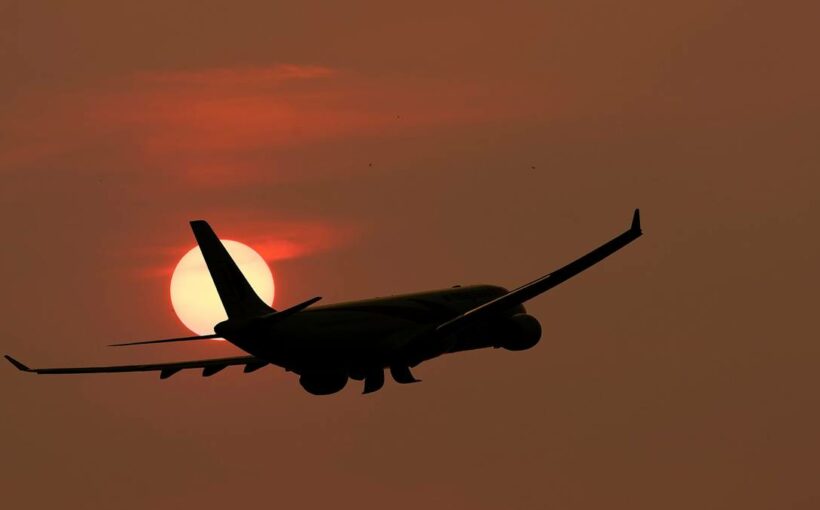Tourism and aviation groups have welcomed the easing of MIQ rules as a positive first step – but they want the Government to do more and move faster.
The Board of Airline Representatives says the Government’s relaxation of some MIQ rules from November 14 reflected the reality of what is happening around the world as vaccination rates grow.
”As the move opens up more MIQ space and allows more people to fly home, some of the hundreds of people working in the aviation sector would be able to return to work. It is a small step in the right direction, but the Government needs to move faster,” said Justin Tighe-Umbers, executive director of Barnz.
Arrivals from several South Pacific countries will be able to enter New Zealand without MIQ requirements from November 8. For other arrivals, the time spent in MIQ will be shortened and followed by a period of isolation at home.
The option of self-isolation at home will be made available to increasing numbers of fully vaccinated travellers in the first quarter of 2022.
Tighe-Umbers said it would be good for them and the whole aviation system to have a firm date to work to.
“I am sure people who want to travel to see family and friends or do business will be despondent that they will still have to do seven days of MIQ on their return until some time in the first quarter of next year,” he said.
“If you follow what science and the risk data tells us, it makes total sense for double-vaccinated travellers with negative pre-departure tests to be able to self-isolate when we are already allowing hundreds of New Zealanders with Covid to self-isolate at home.”
Positive cases at the border are “increasingly rare” now, at two or three per 1,000.
Tighe-Umbers said official data has always shown people flying in with Covid has been low.
Statistics New Zealand’s latest data shows 211,007 people arrived in the year August 2020 to August 2021. From March 2020 to October 2021, Ministry of Health data shows 1,887 people arrived with Covid.
“Even allowing for the date discrepancies, the data shows travellers arriving with Covid have on average been less than one per cent of arrivals.”
There was also data that shows of the 22,000 foreign aircrews that have stayed in MIQ in New Zealand since October 2020, there have only been two positive cases of Covid.
”That shows how well airline hygiene systems are working,” said Tighe-Umbers
The Tourism Export Council said the announcement today about changes to MIQ was positive and it supported the Government’s priority of helping New Zealanders to return and support a self-isolation regime for those who can.
Chief executive Lynda Keene said the council hoped over the next few weeks this will shift from not only Kiwis but include international visitor arrivals.
The council would offer solutions to the Government which has indicated that there are challenges with international visitor arrivals due to these not necessarily having home-isolation options.
”We are keen to see more detail around the border reopening plans and settings. In particular, any changes that will be made in the event that New Zealand does not meet the goal of a 90 per cent full vaccination rate,” she said.
Achieving a full vaccination rate between 80 per cent and 90 per cent is a target that should prompt the return of international visitors back early next year, especially if international visitors meet all the border requirements.
”If the Government can provide a set date that international visitors can return to New Zealand in 2022 without MIQ, that will help airlines put NZ back on their international schedules and protect the international tourism sector,” said Keene.
Australia was going all out to attract international arrivals with the pending reopening of borders there, she said.
”The race will be on to capture the share of long-haul visitors back Down Under and Australia will be highly competitive. We need to be in to ensure we are not disadvantaged. A set date is what we need,”she said.
Tourism Aotearoa chief executive Chris Roberts said the announcement was
a small step in the right direction but tourism operators need more certainty about the Government’s plans for reconnecting New Zealand with the world.
“New Zealand’s once-thriving tourism industry continues to be the overlooked casualty of the pandemic. It’s now 21 months since the first border restrictions were put in place. International visitor spend was previously worth $48 million a day, and the cumulative loss since we closed our borders now exceeds $25 billion,” Roberts said.
This week’s lifting of the iconic Lakeland Queen paddle-driven vessel from Lake Rotorua and the loss of 15 jobs is just one sad example of the impact on tourism businesses.
“Given the severity of the crisis, the resilience of tourism operators has been phenomenal. Some have been forced to close but the majority are hanging on. However, reserves and resolve are running out,” he said.
“Tourism operators are ready and willing to work with the Government to sort out the ‘complexities’ so that we can safely welcome international visitors and agree on a likely timeline. Until then, targeted support to help tourism operators survive until our borders reopen needs to be seriously considered.”
Source: Read Full Article

/cloudfront-ap-southeast-2.images.arcpublishing.com/nzme/GU2GRZH4EZ6DDSRNUNJQC6CAQY.jpg)